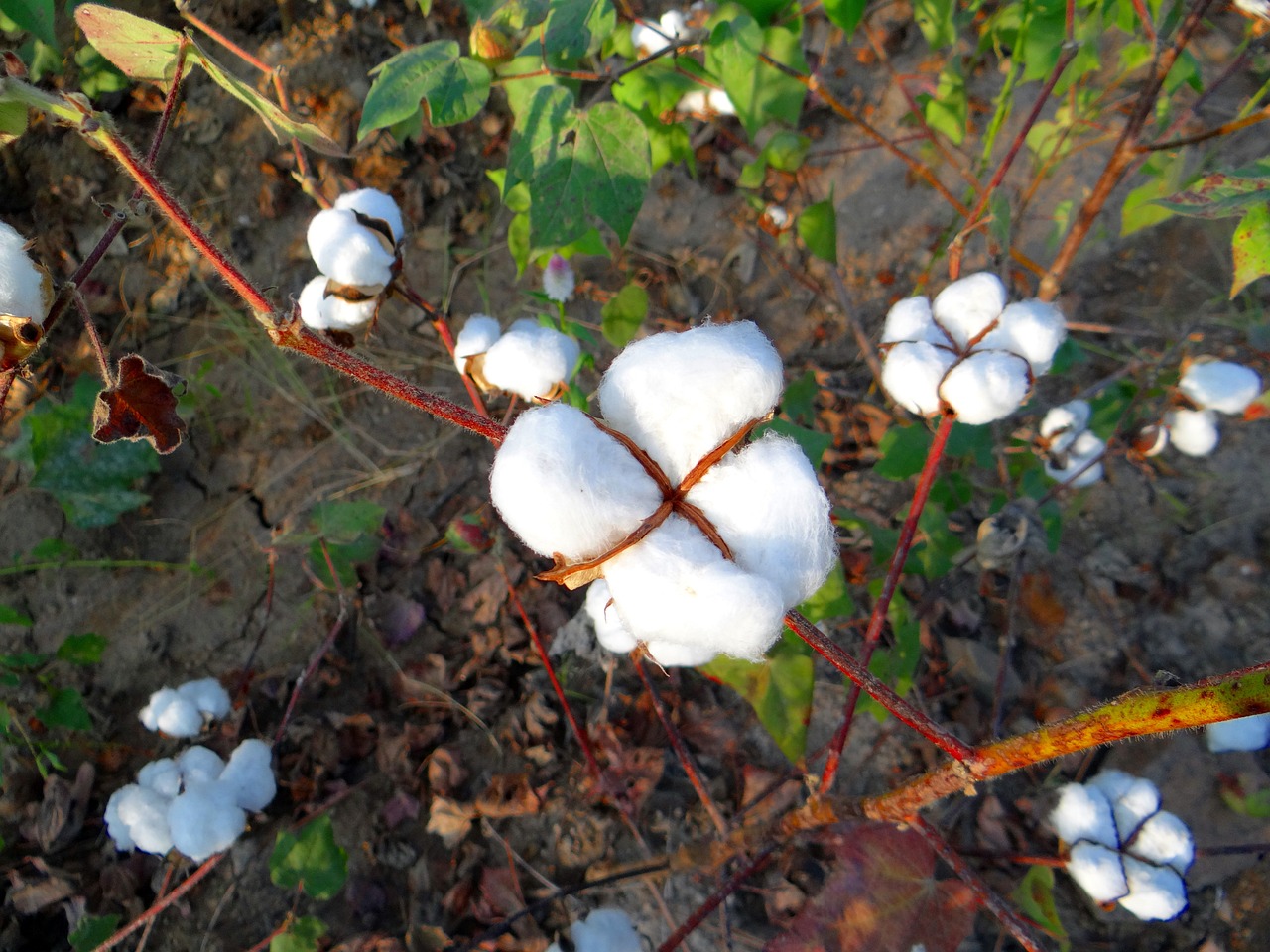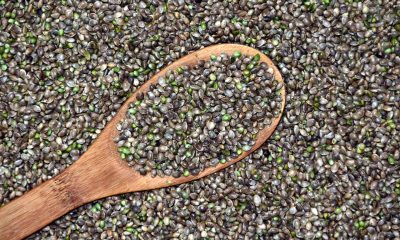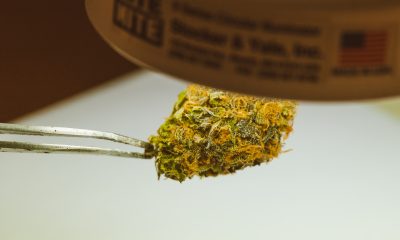Cannabis
Scientists made hemp meat with ‘chewing resistance’
Researchers at the University of Lund have probably been the first in the world to successfully add ‘chewing resistance’ to hemp meat, according to SVT. The Swedes are not the only ones exploring the possibilities of hemp meat. Last July, three companies in New Zealand announced that they have come a long way with a line of hemp-based food products, including a hemp meat substitute.

All over the world, companies and scientists are developing alternatives to meat in order to improve both human health and the health of the planet. In Sweden, scientists have now succeeded in making meat (replacement) from hemp. Not only that, but hemp meat also has the ‘chewing resistance’ consumers so desperately want!
Read more about the hemp meat with chewing resistance recently made by scientists and find the latest hemp news in the world with the Hemp.im mobile app.
Meat is a climate runner
The production – or rather the massive consumption – of meat threatens to completely empty the planet earth (water, farmland, deforestation) and, as a dessert, to saddle it with the enormous environmental pollution in the form of manure and greenhouse gases. This can and must therefore be tackled more effectively, hence the global search for alternatives to meat that is not made from meat.
Scientists in Sweden have now taken a great step forward in that search. In other words: ‘Hemp and rapeseed can cover half the protein requirement.’
Hemp with a meat-like structure
Researchers at the University of Lund have probably been the first in the world to successfully add ‘chewing resistance’ to hemp meat, according to SVT. They did so by boiling hemp proteins under high pressure and temperature, which allowed them to produce a ‘more meat-like structure’. “Moreover, that’s something that will help make the products attractive to consumers,” said food researcher Karolina Östbring.
The need is also for the humankind, because: “We are facing a climate catastrophe, which will force many people to switch from a high dose of animal protein to vegetables – this is the only way we can reduce the climate impact of what we eat.”
The researcher continued: “We humans really like to chew on something,” said the Swedish researcher, “and that’s why – among other things – we appreciate meat so much.”
Residue product rapeseed oil contains more proteins than meat
In addition to the sister of cannabis (hemp), the Swedes also want to change the meat world with rapeseed. According to Östbring, rapeseed and hemp together can provide more than half of Sweden’s protein needs! “There are no vegetables that have exactly the right composition that our body needs, but soy and rapeseed are closest to the whole plant kingdom,” she said.
OP STV said the researcher that the remainder of the production of rapeseed oil – called rapeseed cake – already contains more protein than meat. However, despite the high presence of proteins, that cake tastes bitter and is now mainly used as feed for cows (how cynical). So one of the tasks the scientists are now working hard on is getting rid of that bitter taste.
New Zealand is also exploring the hemp meat
The Swedes are not the only ones exploring the possibilities of hemp meat. Last July, three companies in New Zealand announced that they have come a long way with a line of hemp-based food products, including a hemp meat substitute.
“From a nutritional point of view, all our products contain hemp as one of the most nutritious and complete food sources in the world,” said Justin Lemmens and Kyran Rei, the founders of one of the three companies, Sustainable Foods Ltd.
It is not yet known when the Swedes will be able to get hold of hemp meat, but New Zealanders will be able to cut back on sustainable and healthy hemp meat in early 2021! In addition, this month they can also vote on the legalization of recreational cannabis.
__
(Featured image by Adrienn via Pexels)
DISCLAIMER: This article was written by a third party contributor and does not reflect the opinion of Born2Invest, its management, staff or its associates. Please review our disclaimer for more information.
This article may include forward-looking statements. These forward-looking statements generally are identified by the words “believe,” “project,” “estimate,” “become,” “plan,” “will,” and similar expressions. These forward-looking statements involve known and unknown risks as well as uncertainties, including those discussed in the following cautionary statements and elsewhere in this article and on this site. Although the Company may believe that its expectations are based on reasonable assumptions, the actual results that the Company may achieve may differ materially from any forward-looking statements, which reflect the opinions of the management of the Company only as of the date hereof. Additionally, please make sure to read these important disclosures.
First published in CNNBS, a third-party contributor translated and adapted the article from the original. In case of discrepancy, the original will prevail.
Although we made reasonable efforts to provide accurate translations, some parts may be incorrect. Born2Invest assumes no responsibility for errors, omissions or ambiguities in the translations provided on this website. Any person or entity relying on translated content does so at their own risk. Born2Invest is not responsible for losses caused by such reliance on the accuracy or reliability of translated information. If you wish to report an error or inaccuracy in the translation, we encourage you to contact us.

-

 Crypto2 weeks ago
Crypto2 weeks agoJP Morgan: Ethereum ETF Approval Could Become a Reality
-

 Impact Investing3 days ago
Impact Investing3 days agoEnvironmentalists and Consumers Denounce Repsol for Greenwashing
-

 Impact Investing1 week ago
Impact Investing1 week agoH&M and Inditex Question the Firm that Certifies Responsible Cotton Production
-

 Impact Investing1 day ago
Impact Investing1 day agoThe World’s Largest Insurers Have ESG Blind Spots, According to ShareAction

























